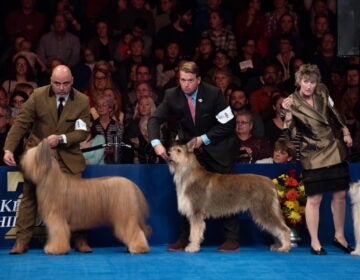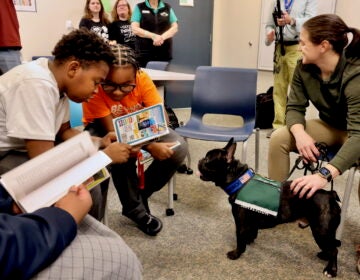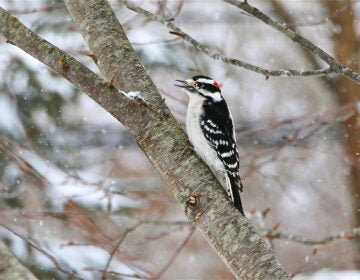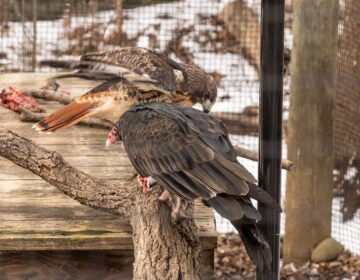To bark is divine: The contest that the National Dog Show is not going to televise
Before the National Dog Show taped in Philadelphia, it held an off-book barking contest. Here’s what barking tells us about dogs.
From Philly and the Pa. suburbs to South Jersey and Delaware, what would you like WHYY News to cover? Let us know!
On Thanksgiving Day, millions of people are expected to watch 2,000 dogs compete in Philadelphia’s National Dog Show on NBC.
The dogs are judged by appearance, temperament and having the characteristics for which they were bred.
But viewers will not hear barking, despite many working breeds having uniquely functional barks.
“It’s part of what the dog was bred to do,” said National Dog Show co-host David Frei. “What we try to talk about at the dog show is relating form to function, and the other things in his temperament and personality that make the dog unique for his job.”
Robin Fitipaldi of Oreland, Pennsylvania, has a redbone coonhound named Mason, whom she is training for search-and-rescue work.
“He is a very good barker,” she said. “He’s very loud.”
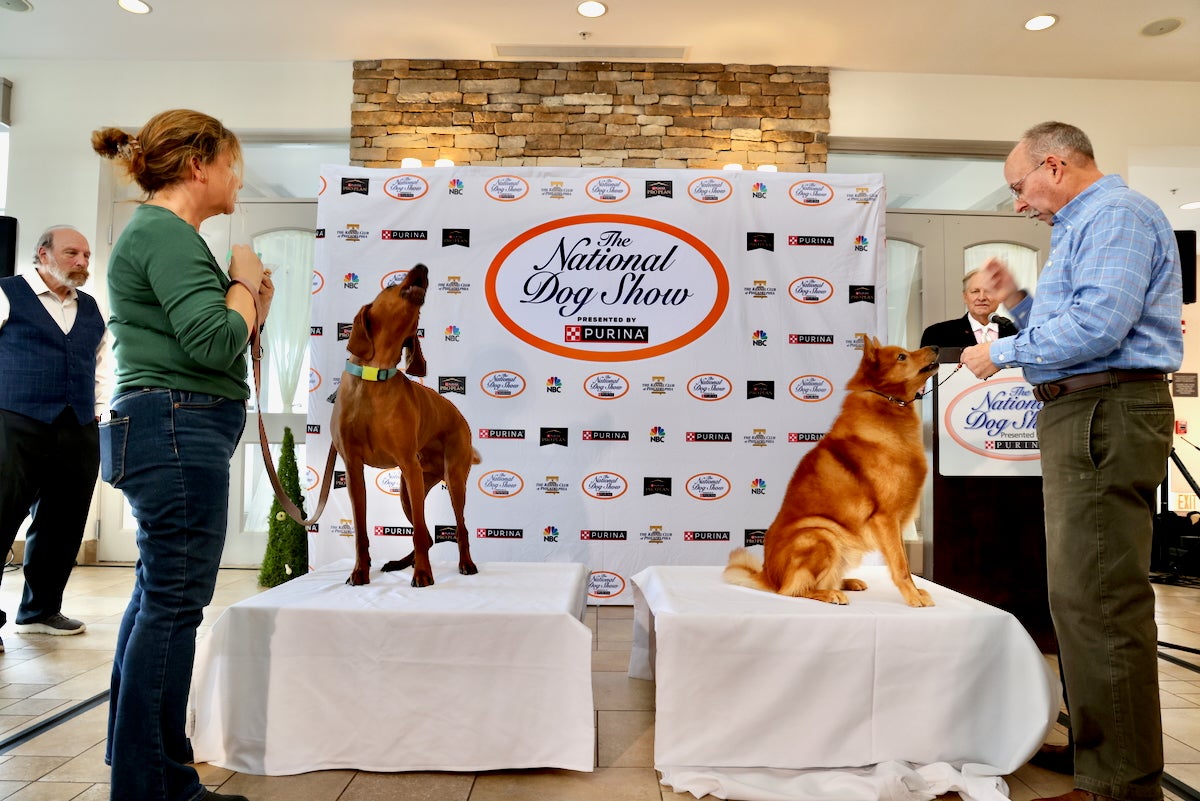
Fitipaldi brought Mason to the Hilton Garden Inn in Valley Forge for a preview event before the National Dog Show was taped Nov. 15–16. Mason, who is not a show dog, participated in an unofficial “Bark-Off” contest to demonstrate one of the qualities not considered in official competition.
Fitipaldi can decipher Mason’s barks. When Mason is working and actively tracking a scent, he does not make a sound.
“When he loses his scent, he barks and I bring him back,” Fitipaldi said. “It’s very deep and I know we have to back up because he’s lost the scent.”
At the barking demonstration, Mason’s barks were high and shrill.
“Now, he just wants treats,” Fitipaldi said. “He’s telling us that he wants it and we’re taking too long to give it to him.”
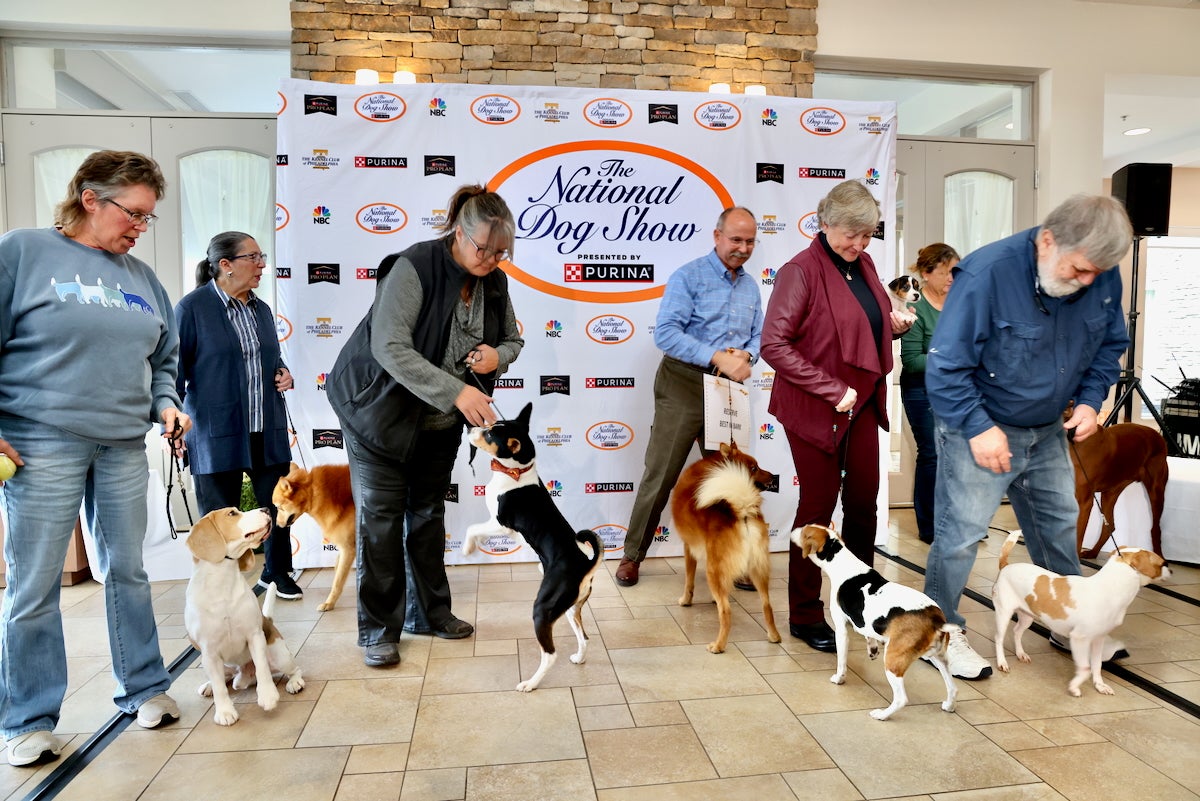
What barking says about a dog
“You can’t get a dog to stop barking,” said Dr. Carlo Siracusa, a canine behaviorist at Penn Vet. “It’s like getting a person to stop talking. Even when you can do it, it’s not necessarily the best for the individual.”
Barking is caused by a range of environmental factors, from playful energy to perceived threats. A dog might feel stressed from a confusing set of circumstances or separation anxiety. A sudden change in a dog’s barking patterns could signal a medical issue.
Siracusa does not subscribe to dogs having general breed characteristics when it comes to barking or any other behavior, as individual dogs of the same breed can vary widely. A more significant behavioral factor is the person taking care of the dog.
“Dogs, evolutionarily, they’ve learned that we humans use a lot of verbal communication, so they tend to be pretty vocal around us,” Siracusa said. “They’ve found that that’s a good way to get our attention and maybe get some food, and maybe being taken out for a walk.”
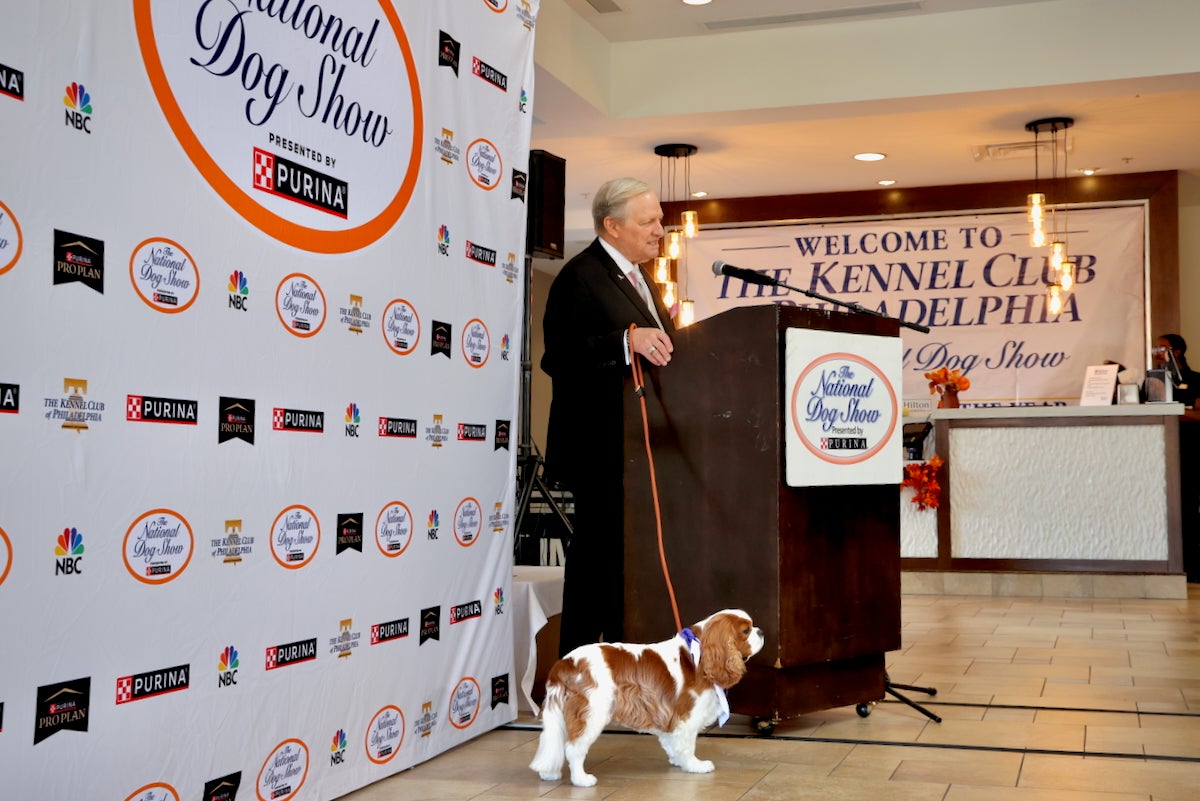
The dog that didn’t bark
The bark-off at the Hilton had an odd entrant: a breed that cannot bark. The basenji, an African breed, has a larynx shaped differently from most other breeds, rendering it unable to make barking sounds. Instead, it is capable of a yodel-like sound more akin to singing than barking.
The basenji is known as a “barkless” dog. During the contest, Hammer, from Coventry, Rhode Island, true to form, refused to make any sound at all.
Also in the unofficial barking competition were two Finnish spitzes, a type of hunting dog popular in Finland but almost unheard of in the United States. Bill Swartz of Virginia Beach, Virginia, said his two dogs, Mikko and Hakan, are the only two Finnish spitzes showing in East Coast competitions.
The Finnish spitz is more popular in Finland, where it is the national breed. It is known for its rapid, machine-gun style of barking.
“They’re used to hunt in Finland,” Swartz said. “They point or tree at game, and they bark. Their voice changes, the pitch and the speed. It goes up 150 times a minute. It gets so high and shrill that the sound carries through the woods.”
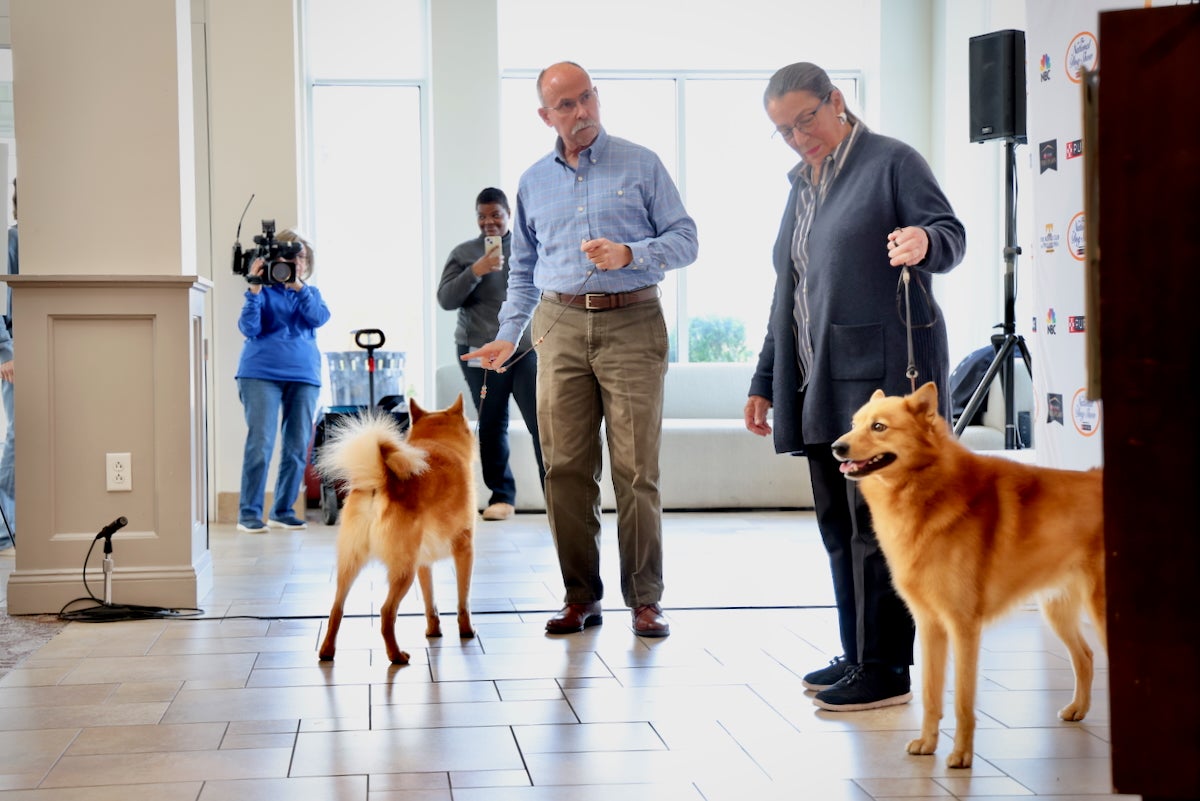
In the makeshift competition in the hotel lobby, Mikko and Hakan were hesitant to bark, reluctantly letting out two modest yips under the judges’ gaze.
The pair’s other owner, Sue Marshall, said a highly choreographed, televised competition does not always allow for a dog to show off the natural instincts for which it was bred.
“It’s tough on the dogs. They don’t get to be dogs. They don’t get to run around the yard,” she said. “They’re in their crate, they’re on the bench at a bench show, they’re in the ring.”
“At home, they’re off the lead, they can do what they want. They can hang out on the couch and chase after squirrels when they want,” Marshall said. “Having a dog is one of the best things ever.”
It’s an anniversary year of sorts for the National Dog Show, which will be broadcast on Thanksgiving, Thursday Nov. 27, from noon to 2 p.m. on NBC. “Best in Show,” the mockumentary film that birthed the competition, premiered 25 years ago. To mark the anniversary of the film, Purina dog food has released a limited-edition Busy Bee dog toy, which was a pivotal plot device.
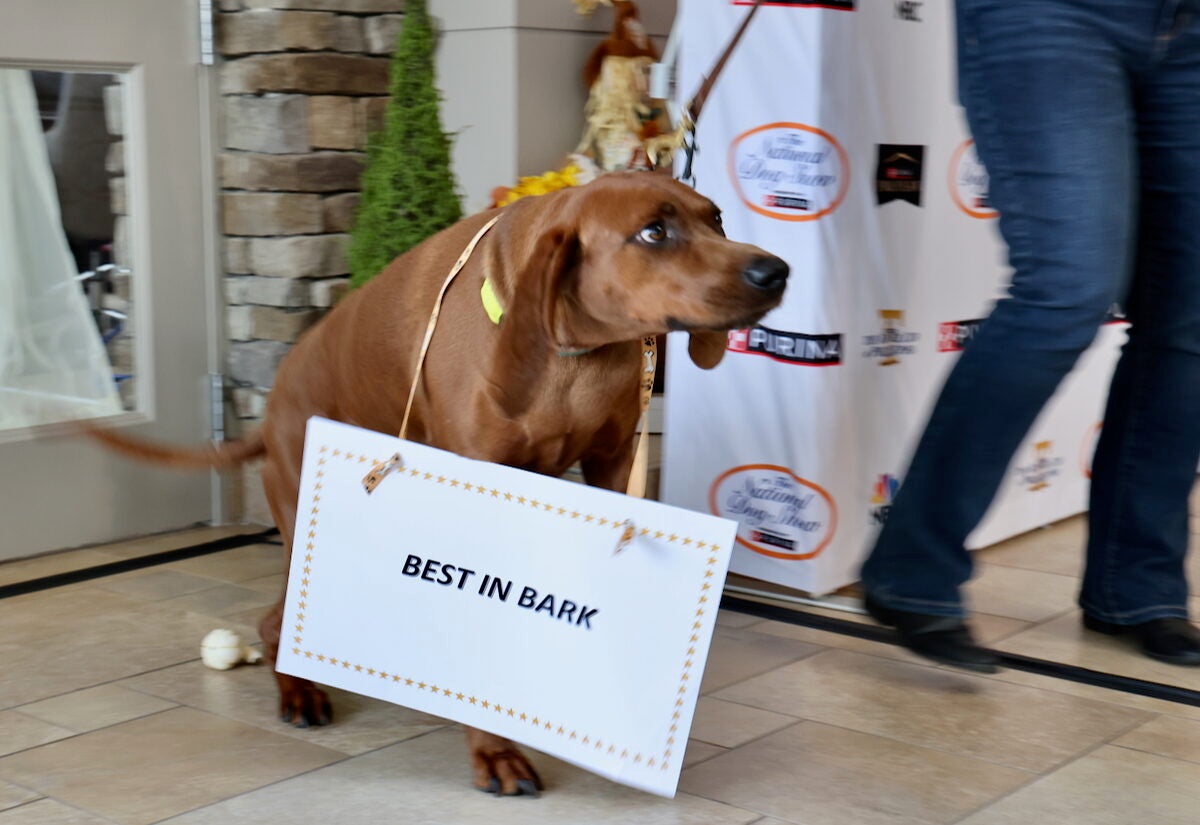

Saturdays just got more interesting.
WHYY is your source for fact-based, in-depth journalism and information. As a nonprofit organization, we rely on financial support from readers like you. Please give today.



